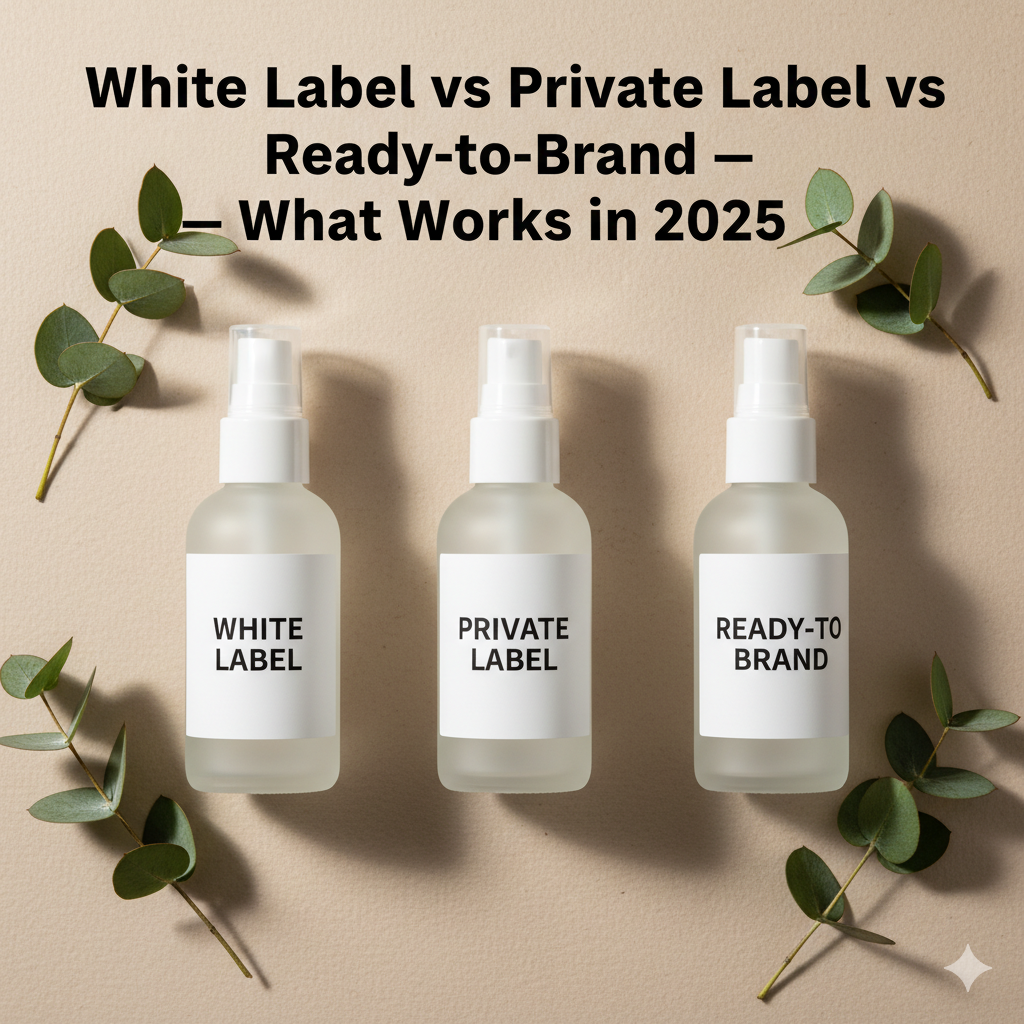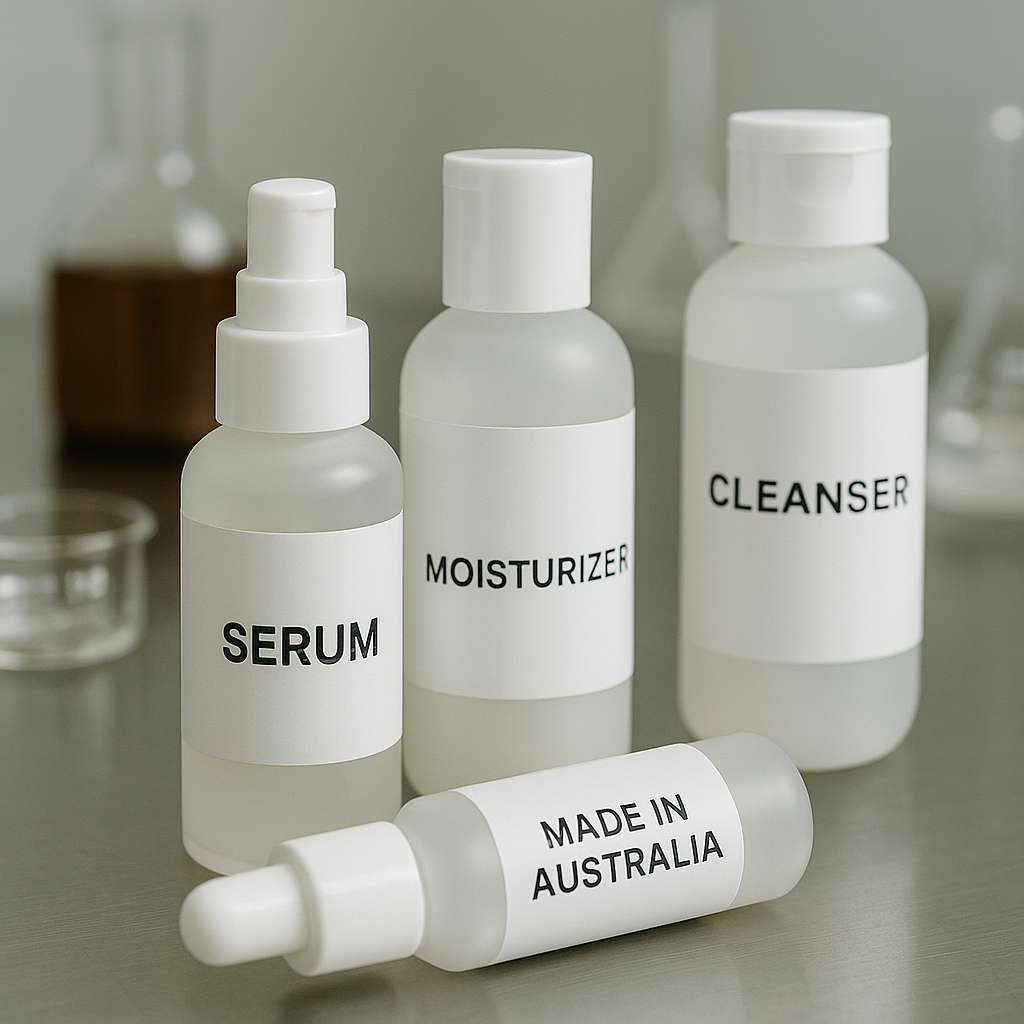If you’ve been exploring ways to start a skincare or eCommerce brand, chances are you’ve heard the terms white label, private label, and ready-to-brand thrown around.
They sound similar — but each one can completely change how fast you launch, how much you spend, and how unique your brand feels.
So let’s clear the confusion and figure out which model truly works best in 2025 (especially for entrepreneurs who want to start smart — not slow).
1. What is White Label?
White labeling means you buy a pre-made product from a manufacturer and sell it under your brand name — without changing the formula or design.
Think of it as:
“Same product, different label.”
Example:
A lab makes a vitamin C serum. Ten different brands buy the same serum and just print their own labels.
✅ Pros:
-
Cheapest and fastest option
-
No R&D or testing required
-
Easy to launch small batches
❌ Cons:
-
You can’t change ingredients or packaging
-
Many other brands may sell the same product
-
Harder to stand out long-term
Best for:
New entrepreneurs testing the market or validating their brand concept before full investment.
2. What is Private Label?
Private labeling gives you more control.
You still use an existing formula, but you can request custom ingredients, packaging, and scent variations.
Think of it as:
“Same base, your personal touch.”
Example:
A skincare lab lets you use their cleanser formula but customize the fragrance, label design, and bottle style to match your brand.
✅ Pros:
-
More unique and brand-specific
-
Professional-looking, premium appeal
-
Flexible pricing and packaging
❌ Cons:
-
Slightly higher minimum order quantities (MOQs)
-
Some lead time for customization
-
Can’t claim 100% proprietary formula
Best for:
Growing brands that want distinction and a premium image without investing in full-scale formulation.
3. What is Ready-to-Brand? (The 2025 Trend)
Ready-to-Brand is the next evolution of white and private label — a hybrid designed for 2025 entrepreneurs.
You get a turnkey business package:
-
Pre-tested products (already market-approved)
-
Custom branding & packaging done for you
-
Optional website + digital marketing setup
Think of it as:
“Your brand — ready to sell from day one.”
Example:
You choose from a catalog of high-performing skincare lines. The provider adds your logo, sets up your Shopify store, and ships your products directly to customers.
✅ Pros:
-
Launch in weeks, not months
-
No factory coordination or design headaches
-
All-in-one service for branding, labeling, and fulfillment
❌ Cons:
-
Slightly higher startup cost than white label
-
Limited customization compared to full private label
Best for:
Modern entrepreneurs who value speed, automation, and professional branding over total control.
4. Which One Actually Works in 2025?
In 2025, Ready-to-Brand is winning the race.
Why? Because the market moves fast — and people value execution speed more than perfection.
Let’s compare 👇
| Model | Cost | Customization | Launch Time | Scalability | Best For |
|---|---|---|---|---|---|
| White Label | Low | Minimal | Fastest | Moderate | Beginners |
| Private Label | Medium | Good | Slower | High | Growth Brands |
| Ready-to-Brand | Medium-High | Balanced | Very Fast | Excellent | Modern Startups |
💬 5. Final Thoughts
If your goal is to start quickly, look professional, and grow sustainably — Ready-to-Brand gives you the balance between customization, cost, and speed.
It’s the perfect model for 2025 — especially in industries like skincare, supplements, or wellness where time-to-market can make or break a brand.
Don’t wait months to “perfect” your formula.
Start with something high-quality, branded beautifully, and scalable — and perfect it after your customers start loving it.
✨ Because in 2025, speed + branding = success. ✨



